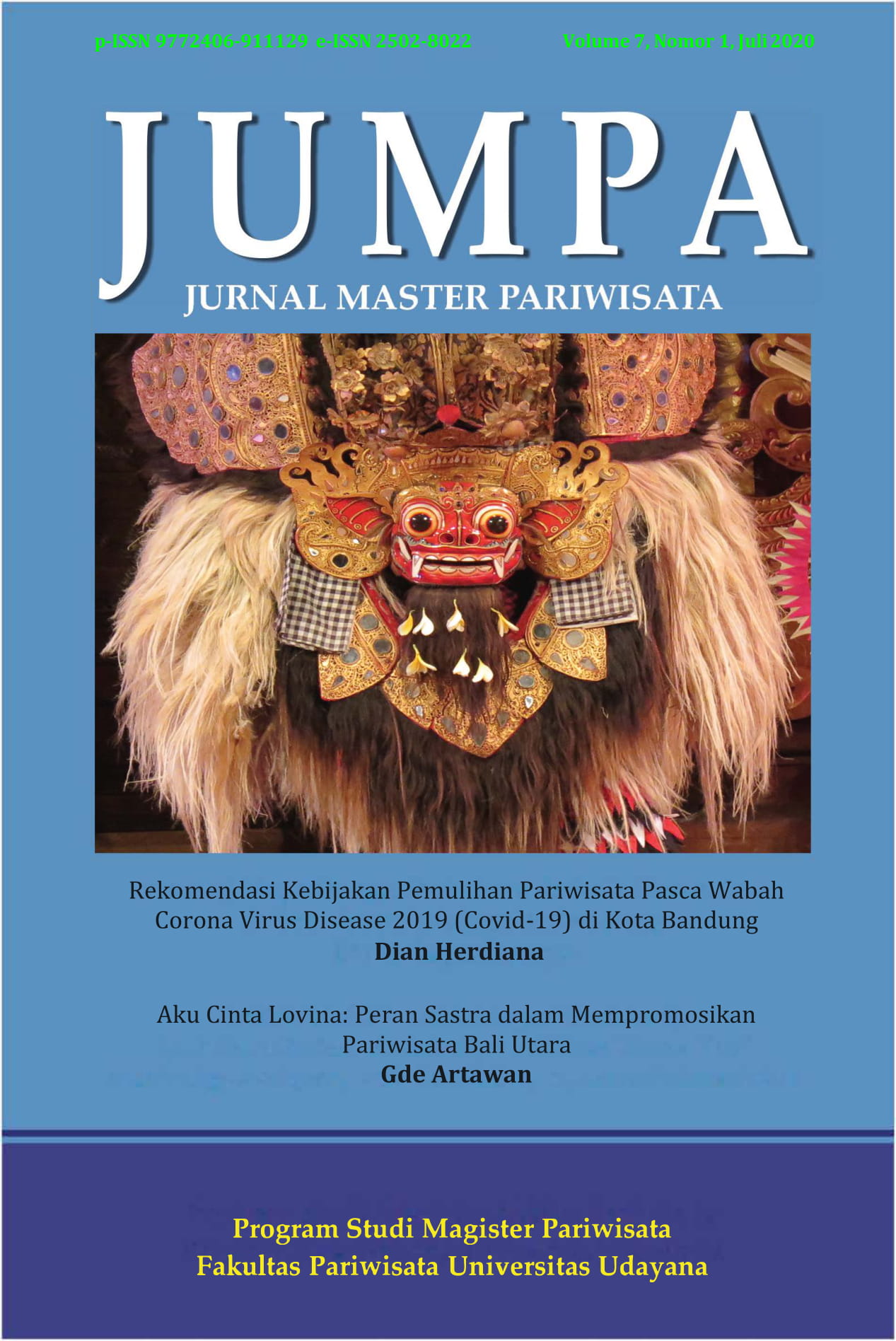Strategi Penanganan Krisis Dampak Erupsi Gunung Agung oleh Pelaku Pariwisata Ubud
Abstract
The phenomenon of Mount Agung eruption has a negative impact on Ubud tourism. The impact of this event was greater than the 2002 Bali bombing. Generally, governments and tourism actors in Ubud have no yet a specific management to reduce the negative impact of Mount Agung eruptions. This research is qualitative descriptive method approach with case study research. Primary data in this study were obtained from interviews with informants namely; government, tourism institutions (NGOs) and tourism industry players in Ubud. Researchers also used online desk research to collect the secondary data that already exists on the internet from trusted sources in the form of public documents (images, e-news), or personal documents (e-mail, work reports and results of minute meetings). The result of this study, there were obtained four stages of crisis handling carried out by Ubud’s tourism actors namely 4R such as, reduction, readiness, response, and recovery. To minimize the negative impact of Mount Agung eruption, stakeholder needs synergetic all elements such government, non-government organizations (NGOs), industry actors, communities and other stakeholders to keep tourism sector remains conducive.
Keywords: strategy of tourism actors, Mount Agung eruption, crisis














